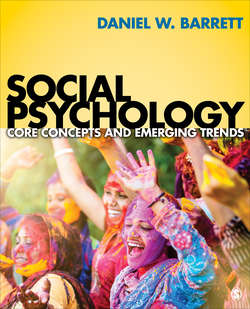Читать книгу Social Psychology - Daniel W. Barrett - Страница 97
На сайте Литреса книга снята с продажи.
Applying Social Neuroscience to Law Can fMRI Detect Lies?
ОглавлениеAs you’ll see in the remainder of this text, social neuroscience has wide applications in social psychology and beyond. Recently, researchers have been studying whether or not fMRI can be used in law enforcement and the courts, specifically to detect deception in suspects and witnesses (Langleben & Moriarty, 2013). Given the challenges people face in detecting lies on their own (which are discussed in Chapter 5), law enforcement has sought a foolproof, technological solution. How might an fMRI identify lies? Briefly, it has been proposed that there are discernable differences in brain processes when people tell the truth versus when they do not (Bizzi et al., 2009). The short answer is that neuroscientists largely agree, at least at this time, the fMRI is unable to identify such differences (Bizzi et al., 2009; Ganis, Kosslyn, Stose, Thompson, & Yurgelun-Todd, 2003; Langleben & Moriarty, 2013). Some of the criticisms include the following:
Different types of lies may show different brain activation patterns, and therefore no single brain “signature” for deception exists.
Existing research has involved only very small samples.
Lying in a laboratory setting is artificial and not reflective of real-world conditions, and consequently, generalizability to non-experimental situations is low.
In addition to the scientific concerns, questions have been raised regarding the ethics of using an fMRI for lie detection: Would it violate the Fifth Amendment prohibition of forced self-incriminating testimony? Would it violate the Fourth Amendment protection from warrantless search?
Figure 2.9 fMRI as a Lie Detector
Source: Barry Blitt, The New Yorker (July 2, 2007).
Reductivism: Idea that we need only study the brain to fully understand the causes of social behavior
